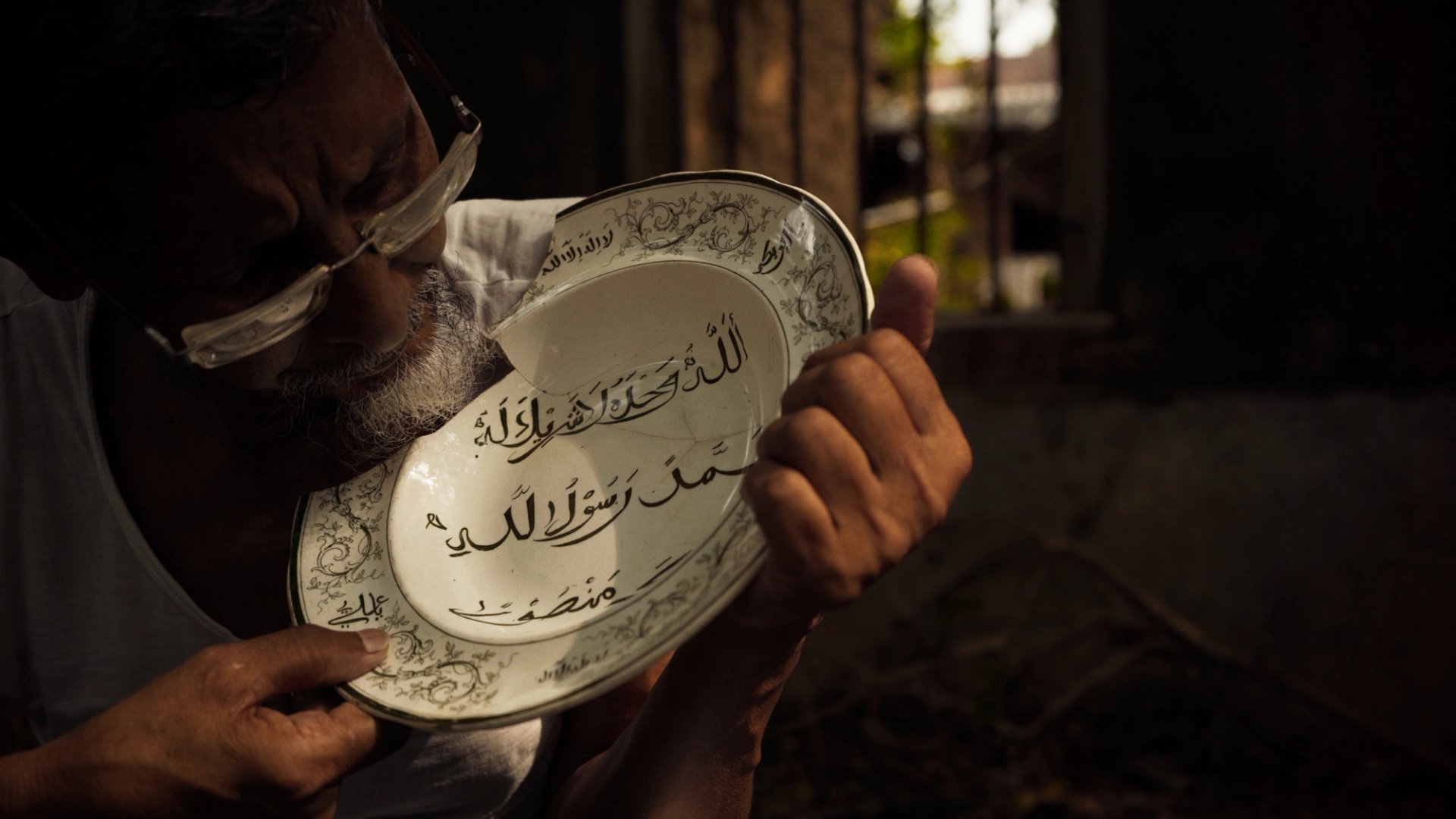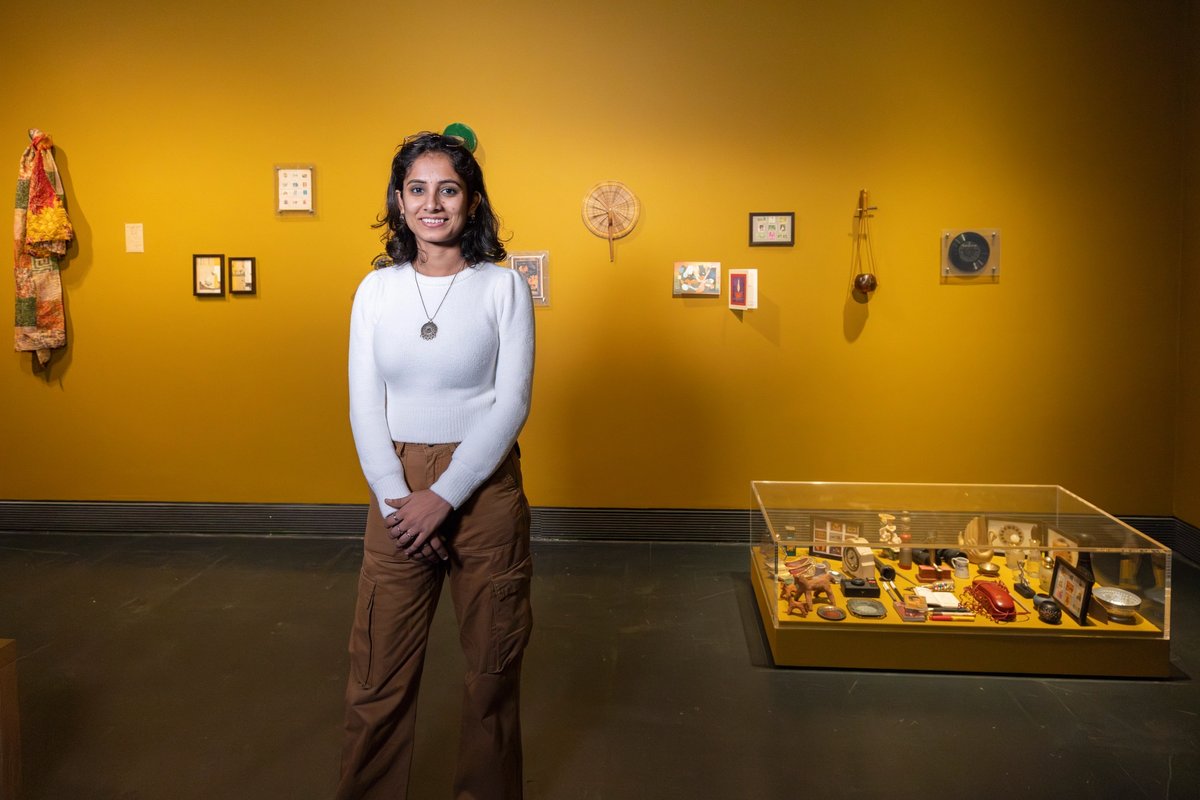The Indian artist Khandakar Ohida has been named the winner of the seventh edition of the Jameel Prize. Ohida received the award for the film Dream Your Museum, a tender portrait of her uncle, Khandakar Selim, whose story is told through his seemingly mundane but together extraordinary collection of objects and memorabilia.
Awarded by the Victoria and Albert Museum (V&A) in London and the United Arab Emirates and Saudi Arabia-based cultural organisation Art Jameel, the £25,000 Jameel Prize is presented every three years to an artist inspired by Islamic traditions. Founded in 2009, it aims to highlight the ways in which the Islamic world's past achievements in art are reflected in the work of contemporary practitioners. This year’s edition focuses on artists working with moving image and digital media—it received over 300 entries from around the world.
Dream Your Museum will go on display at the V&A, alongside works by the awards’ six other finalists, from 30 November. Speaking ahead of the opening, the museum’s curator of contemporary art from the Middle East, Rachel Dedman, said: “For all these artists, a hallmark of their work is this combination of the personal and the political. Their projects emerge from their own heritage and experience, but speak to something universal.
“As we witness terrible conflicts across the Middle East and the disproportionate effects of climate change across the Global South, it feels ever more urgent that we bring the voices of artists who are working and telling stories from these regions into the V&A, to champion the intimate, personal, nuanced, complex storytelling they’re doing in this region.”
Ohida, who works between Kolkata and New Delhi, created Dream Your Museum at her family’s traditional mud house in West Bengal. Though the house has since been torn down, her film provides an important record of her uncle’s collection of more than 12,000 objects, amassed lovingly over the past 50 years. Many of the pieces were given to him people he helped as a doctor’s assistant.

Khandakar Ohida, Dream Your Museum (2022)
Courtesy Khandakar Ohida
A selection of Selim’s objects—including a hand mirror, binoculars, photographs, ceramics and perfume bottles—are displayed alongside the film. Though many of the items were previously discarded, all have been given meaning by his conservation and care. When viewed through Ohida’s lens, they also reflect the artist and subject’s joint desire for a museum which reflects diverse social and cultural identities, and the experiences of minorities in India.
“The jury praised the quiet power of Khandakar’s beautiful cinematic work, Dream Your Museum,” said V&A director and chair of the Jameel Prize judging panel, Tristram Hunt, in a statement. “The film and installation of objects from her uncle’s vast esoteric collection speak to an experience of Muslim communities in India, and challenge the traditional authority of conventional museums.”
Ohida’s film is displayed alongside shortlisted works by Sadik Kwaish Alfraji, Jawa El Khash, Alia Farid, Zahra Malkani, Khandakar Ohida, Marrim Akashi Sani, and Rami Haerizadeh, Rokni Haerizadeh and Hesam Rahmanian. These artists engage with issues relating to water, ecology, landscape, spirituality, and the ways in which extractive industries and political dynamics shape the environmental and social fabric of the Middle East and South Asia. They achieve this through practices spanning sculpture, photography, installation, sound, performance and VR.
Discussing the choice to focus this year’s prize on moving image and digital media, Dedman said: “I proposed this as our theme because I noticed that in previous years, when this kind of work was submitted alongside artists working in more tangible media—ceramics, textiles, fashion—it didn't always resonate with a jury in quite the same way. This felt like an opportunity lost.
She continues: “Film and animation, installation, all time based media and digital technologies offer the potential of immersive and emotional encounters for a visitor, for storytelling in the strongest sense.”
- Jameel Prize: Moving Images, Victoria and Albert Museum, London, until 16 March 2025


